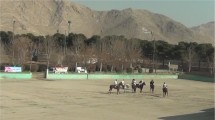Abstract
Super Mario Bros (SMB) are popular video games. Reinforcement learning has solved various problems including robot control and the game of Go. This article focuses on reinforcement learning methods for Super Mario Bros (SMB) games. Previous methods could solve all available SMB single player open source levels by using reinforcement learning methods. The article summarizes that previous evaluation metrics include reward function, loss function and the arrival of the endpoint flag but these metrics cannot fully judge the quality of the policies. The article analyzes the difficulties for agents to complete SMB levels and points out the problems that need to be solved. To solve the problems, the article proposes a new judging metric for SMB games called 100 recent accuracy. The article propose a solution to speed up the training procedure and improve the experimental results. According to the experimental results, the new solution has good experimental performance under the new evaluation metrics proposed in this article.
Access this chapter
Tax calculation will be finalised at checkout
Purchases are for personal use only
Similar content being viewed by others
References
Bros, S.M.: Nintendo entertainment system. Developed by Nintendo, Nintendo (1985)
Pedersen, C., Togelius, J., Yannakakis, G.N.: Modeling player experience in Super Mario Bros. In: 2009 IEEE Symposium on Computational Intelligence and Games, pp. 132–139 (2009). https://doi.org/10.1109/CIG.2009.5286482
Togelius, J., Karakovskiy, S., Koutnik, J., Schmidhuber, J.: Super Mario evolution. In: 2009 IEEE Symposium on Computational Intelligence and Games, pp. 156–161 (2009). https://doi.org/10.1109/CIG.2009.5286481
Shaker, N., Nicolau, M., Yannakakis, G.N., Togelius, J., O’neill, M.: Evolving levels for Super Mario Bros using grammatical evolution. In: 2012 IEEE Conference on Computational Intelligence and Games (CIG), pp. 304–311. IEEE (2012)
Ortega, J., Shaker, N., Togelius, J., Yannakakis, G.N.: Imitating human playing styles in Super Mario Bros. Entertain. Comput. 4(2), 93–104 (2013)
Demaine, E.D., Viglietta, G., Williams, A.: Super Mario Bros. Is harder/easier than we thought. In: Demaine, E.D., Grandoni, F. (eds.) 8th International Conference on Fun with Algorithms, FUN 2016. Leibniz International Proceedings in Informatics (LIPIcs), vol. 49, pp. 13:1–13:14. Schloss Dagstuhl-Leibniz-Zentrum fuer Informatik, Dagstuhl, Germany (2016). https://doi.org/10.4230/LIPIcs.FUN.2016.13. http://drops.dagstuhl.de/opus/volltexte/2016/5880
Silver, D., et al.: Mastering the game of go with deep neural networks and tree search. nature 529(7587), 484–489 (2016)
Schrittwieser, J., et al.: Mastering Atari, Go, chess and shogi by planning with a learned model. nature 588(7839), 604–609 (2020)
Johannink, T., et al.: Residual reinforcement learning for robot control. In: 2019 International Conference on Robotics and Automation (ICRA), pp. 6023–6029. IEEE (2019)
Zhang, R., Lv, Q., Li, J., Bao, J., Liu, T., Liu, S.: A reinforcement learning method for human-robot collaboration in assembly tasks. Robot. Comput. Integr. Manuf. 73, 102227 (2022)
Heuillet, A., Couthouis, F., Díaz-Rodríguez, N.: Explainability in deep reinforcement learning. Knowl. Based Syst. 214, 106685 (2021)
Yarats, D., Fergus, R., Lazaric, A., Pinto, L.: Reinforcement learning with prototypical representations. In: International Conference on Machine Learning, pp. 11920–11931. PMLR (2021)
Zhang, N., Song, Z.: Super reinforcement bros: playing Super Mario Bros with reinforcement learning (2020)
Shu, T., Liu, J., Yannakakis, G.N.: Experience-driven PCG via reinforcement learning: a Super Mario Bros study. In: 2021 IEEE Conference on Games (CoG), pp. 1–9. IEEE (2021)
Bougie, N., Ichise, R.: Fast and slow curiosity for high-level exploration in reinforcement learning. Appl. Intell. 51(2), 1086–1107 (2020). https://doi.org/10.1007/s10489-020-01849-3
Brockman, G., et al.: OpenAI Gym (2016)
Schulman, J., Wolski, F., Dhariwal, P., Radford, A., Klimov, O.: Proximal policy optimization algorithms. arXiv preprint arXiv:1707.06347 (2017)
Kauten, C.: Super Mario Bros for OpenAI Gym. GitHub (2018). https://github.com/Kautenja/gym-super-mario-bros
Author information
Authors and Affiliations
Corresponding author
Editor information
Editors and Affiliations
Rights and permissions
Copyright information
© 2022 The Author(s), under exclusive license to Springer Nature Switzerland AG
About this paper
Cite this paper
Lin, C. (2022). Mario Fast Learner: Fast and Efficient Solutions for Super Mario Bros. In: Memmi, G., Yang, B., Kong, L., Zhang, T., Qiu, M. (eds) Knowledge Science, Engineering and Management. KSEM 2022. Lecture Notes in Computer Science(), vol 13369. Springer, Cham. https://doi.org/10.1007/978-3-031-10986-7_8
Download citation
DOI: https://doi.org/10.1007/978-3-031-10986-7_8
Published:
Publisher Name: Springer, Cham
Print ISBN: 978-3-031-10985-0
Online ISBN: 978-3-031-10986-7
eBook Packages: Computer ScienceComputer Science (R0)




